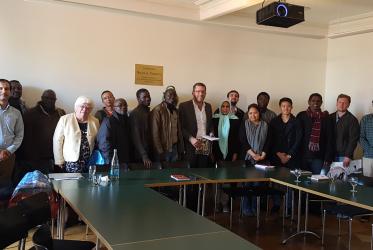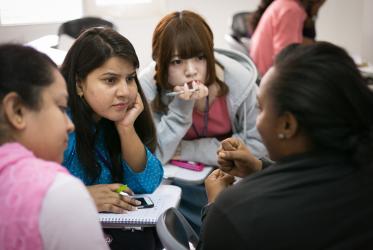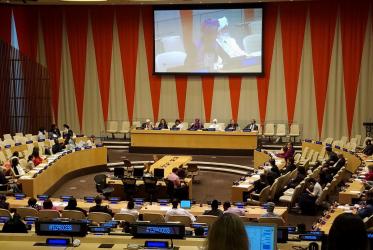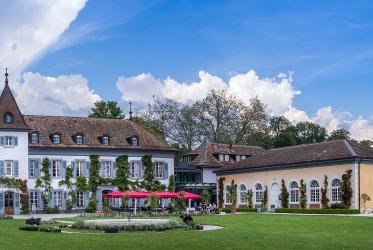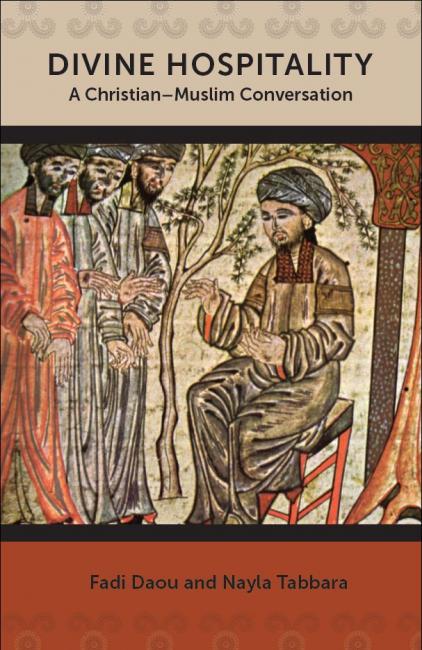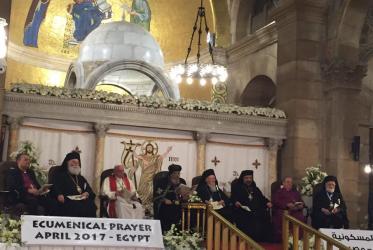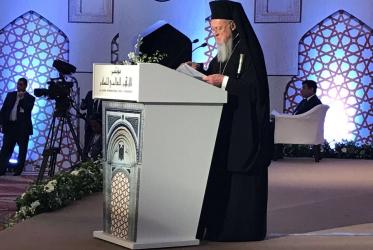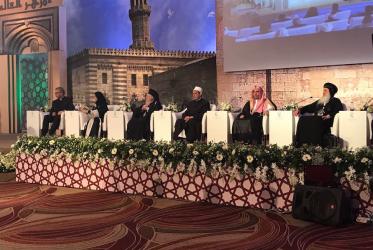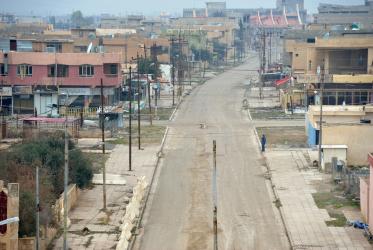Displaying 141 - 160 of 264
WCC students study what makes a peace communicator
18 July 2017
Bossey students speak as one on fostering peace
14 July 2017
Christian and Muslim promote spiritual solidarity
14 June 2017
Historic ecumenical prayer in Egypt for peace and unity
30 April 2017
WCC general secretary speaks on religion and discrimination
14 February 2017
El Secretario General del CMI habla sobre religión y discriminación
14 February 2017
